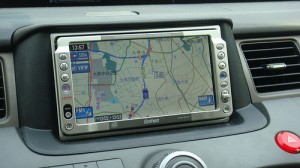Driving with satellite navigation contributes to inattentional blindness
October 1, 2012//Comments Off on Driving with satellite navigation contributes to inattentional blindness
 Satellite Navigations Could Blind Drivers On Road (BioScholar):
Satellite Navigations Could Blind Drivers On Road (BioScholar):
“Driving with a satellite navigation can make you blind to pedestrians, because trying to hold an image of the screen in your mind makes you ignore what is in front of your eyes, a new study has revealed. Focusing on the detail of something we have just seen diverts our attention away from things happening around us and results in an effect known as “inattentional blindness.”
To Learn More:
- Classic and fun experiment on inattentional blindness
- Why do You Turn Down the Radio When You’re Lost?
- Increasing cognitive loads on miners’ brains: good example of where society is heading
Study: Visual Short-term Memory Load Reduces Retinotopic Cortex Response to Contrast (Journal of Cognitive Neuroscience)
- Partial abstract: Load Theory of attention suggests that high perceptual load in a task leads to reduced sensory visual cortex response to task-unrelated stimuli resulting in “load-induced blindness”…Consideration of the findings that visual STM (VSTM) involves sensory recruitment within Load Theory led us to a new hypothesis regarding the effects of VSTM load on visual processing…We tested this hypothesis with fMRI and behavioral measures of visual detection sensitivity… Additional visual detection experiments established a clear tradeoff between the amount of information maintained in VSTM and detection sensitivity…
Posted in Technology & Innovation
About SharpBrains
SHARPBRAINS is an independent think-tank and consulting firm providing services at the frontier of applied neuroscience, health, leadership and innovation.
SHARPBRAINS es un think-tank y consultoría independiente proporcionando servicios para la neurociencia aplicada, salud, liderazgo e innovación.


